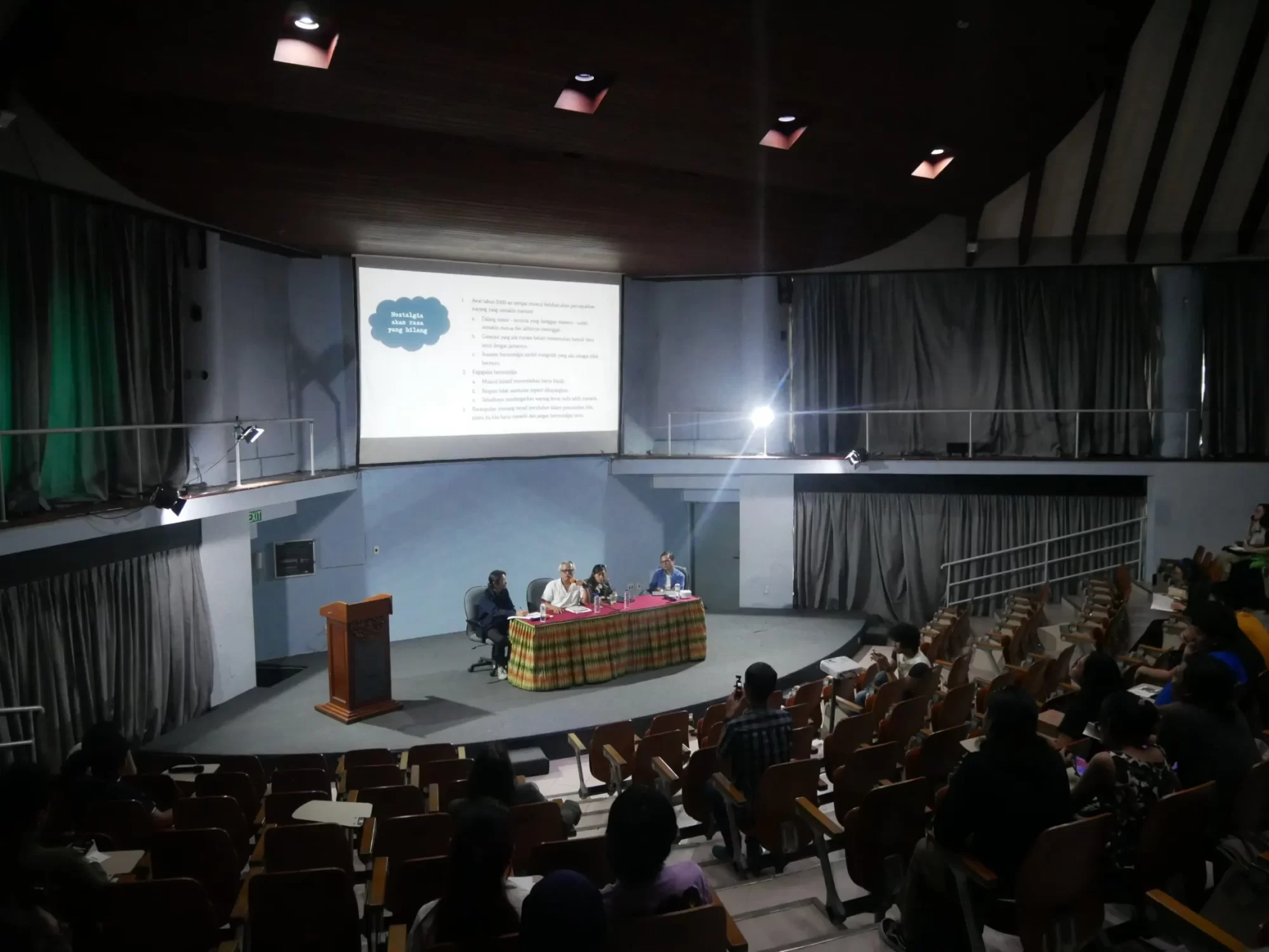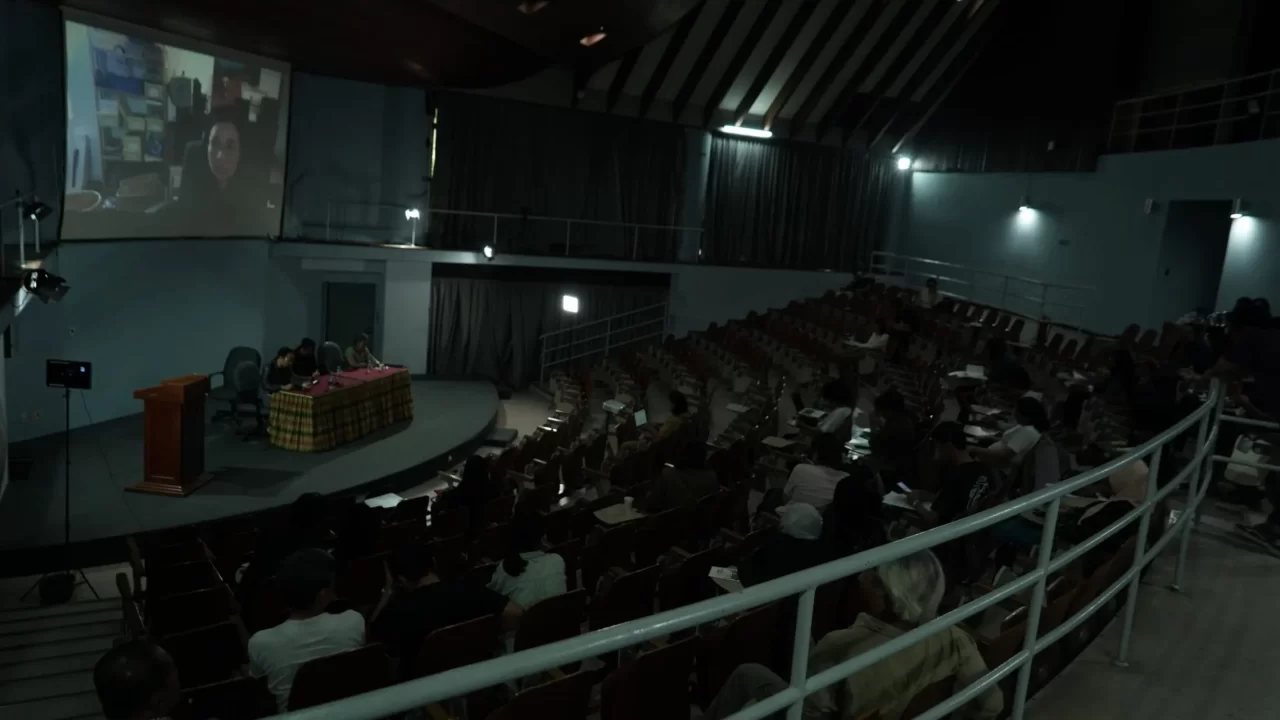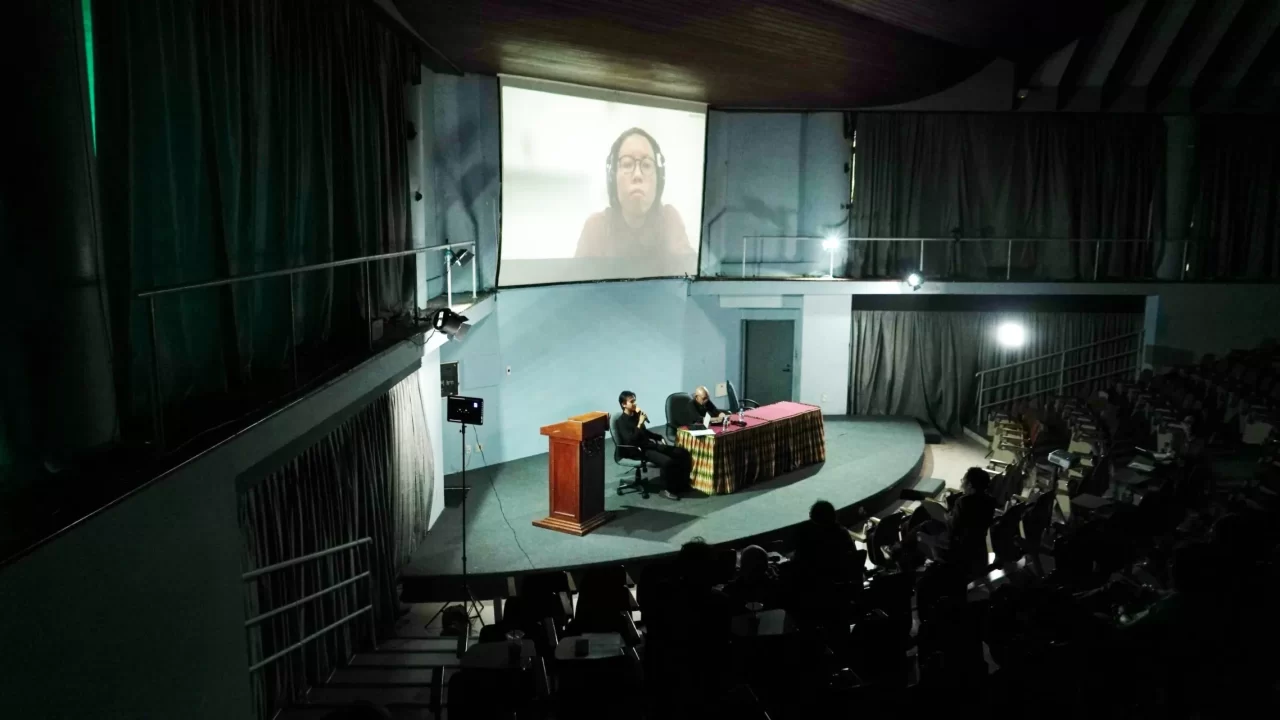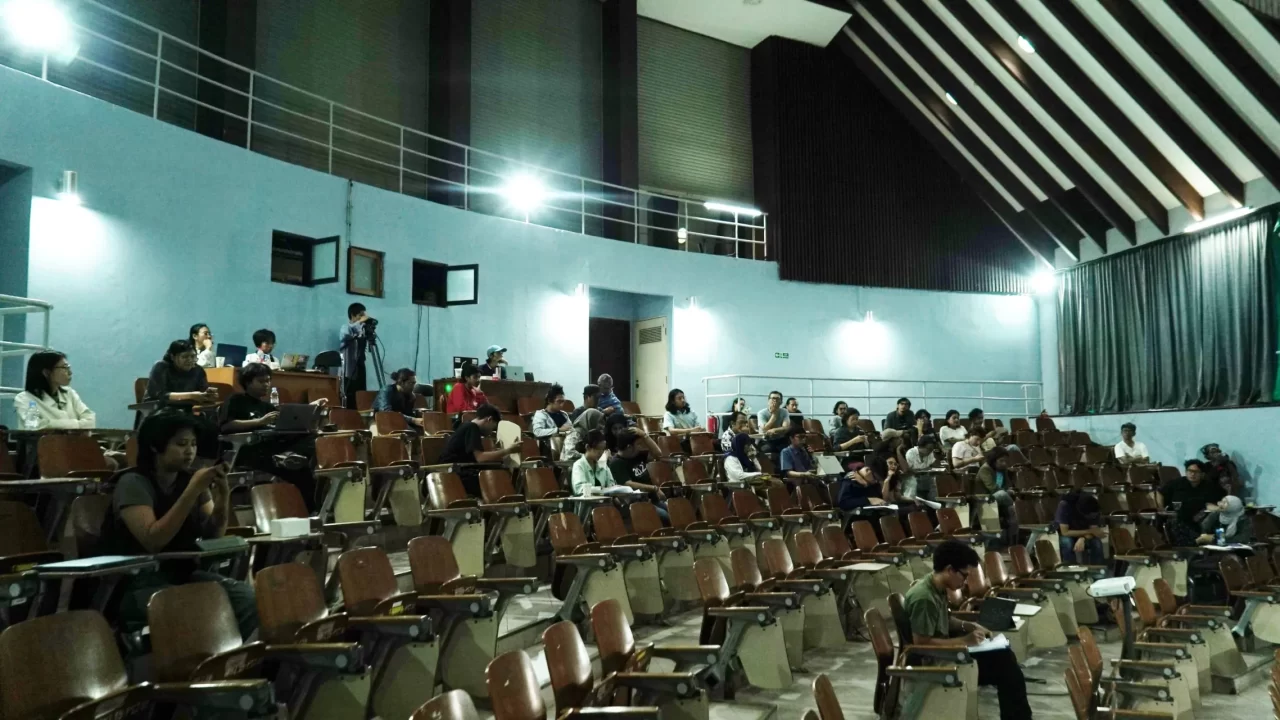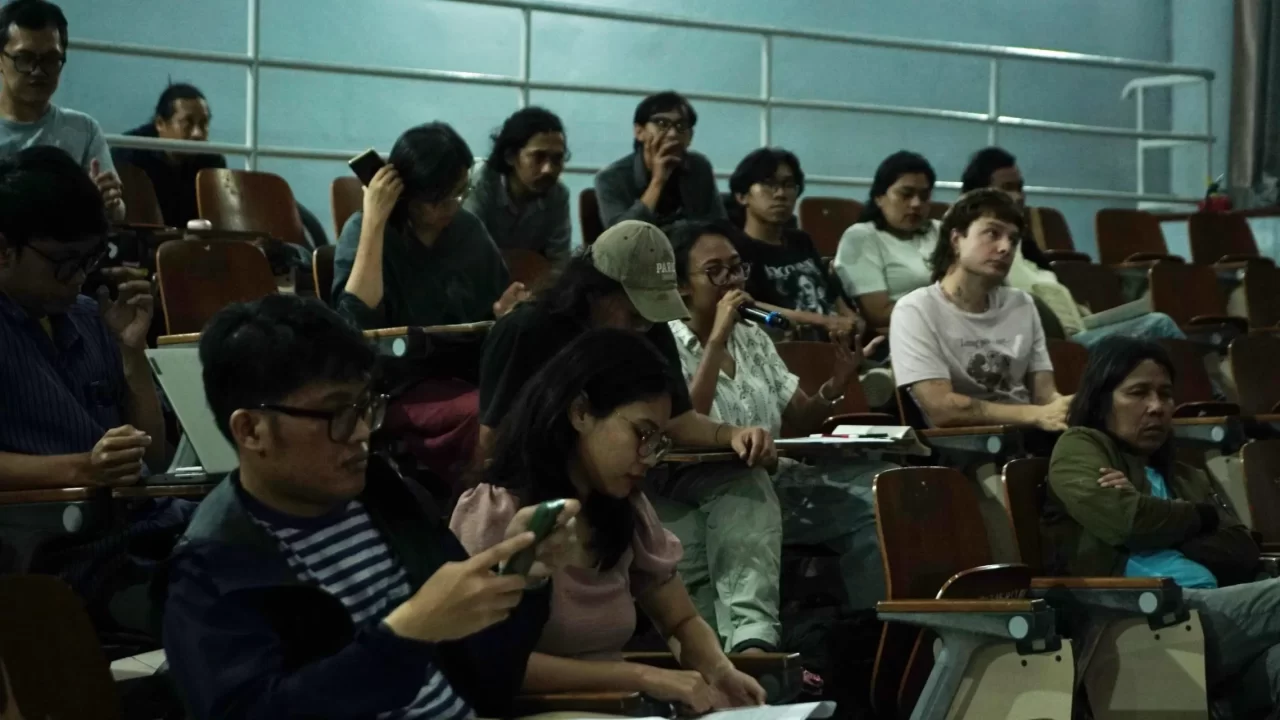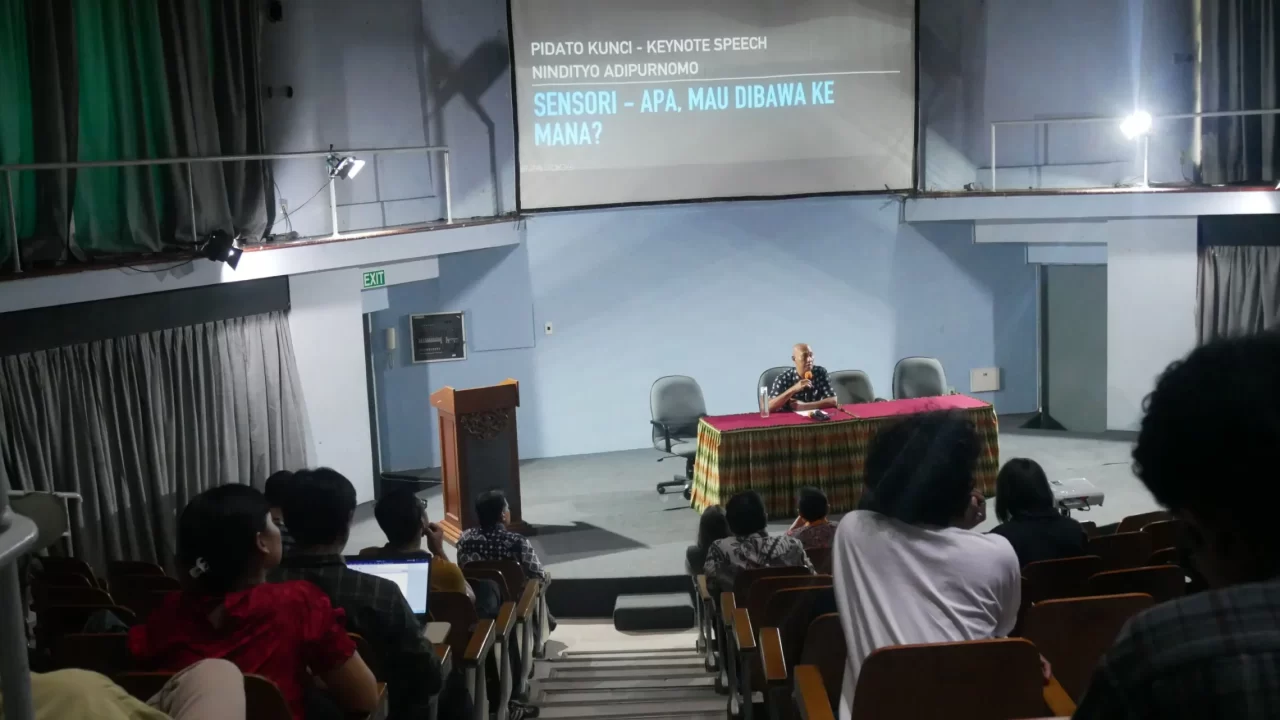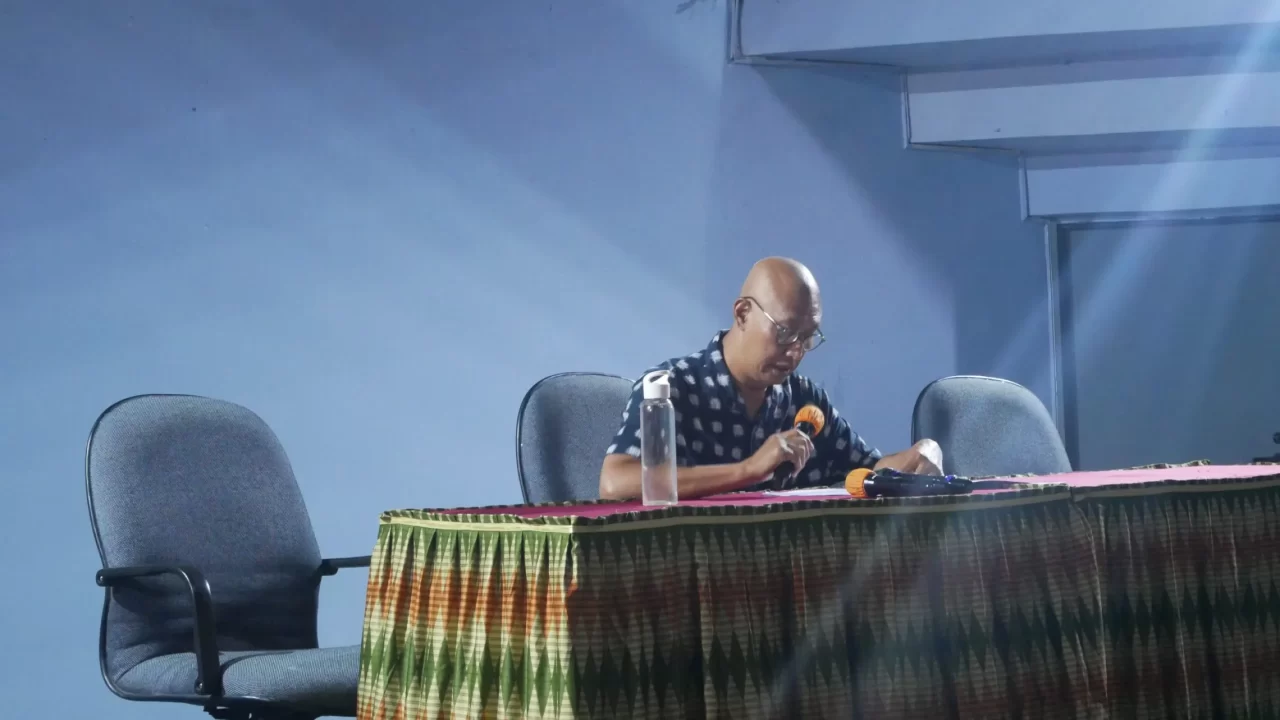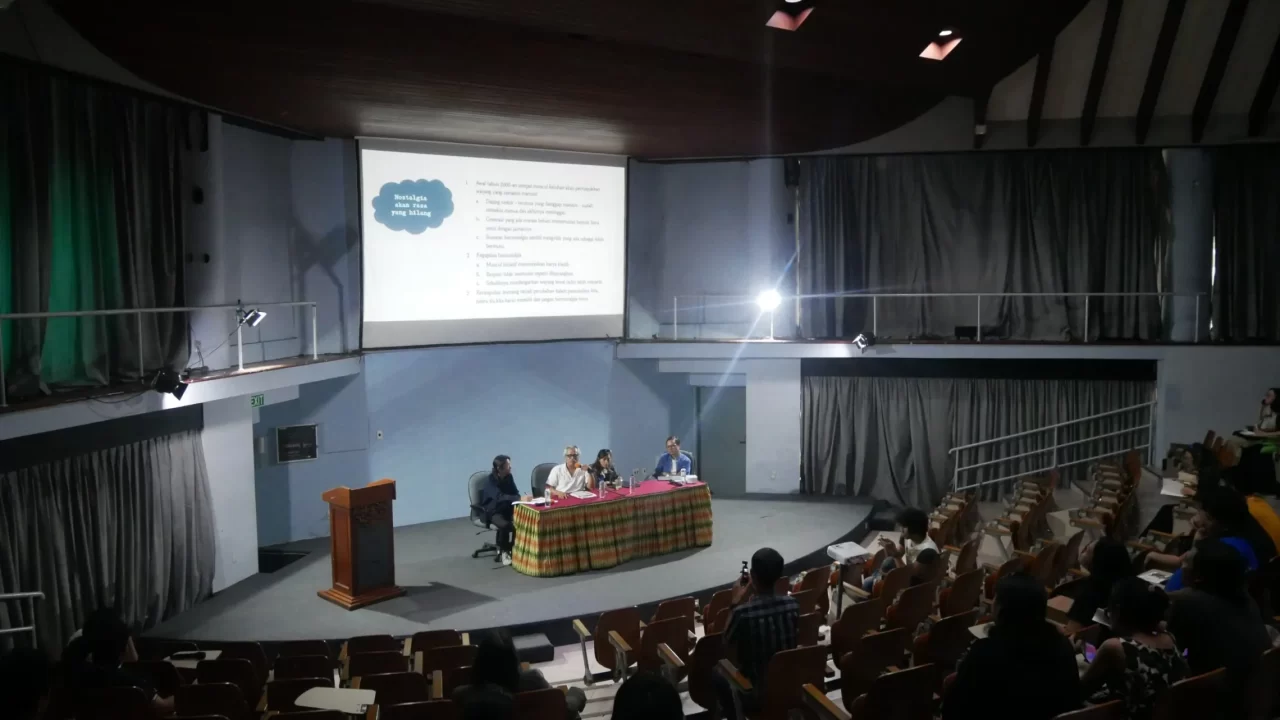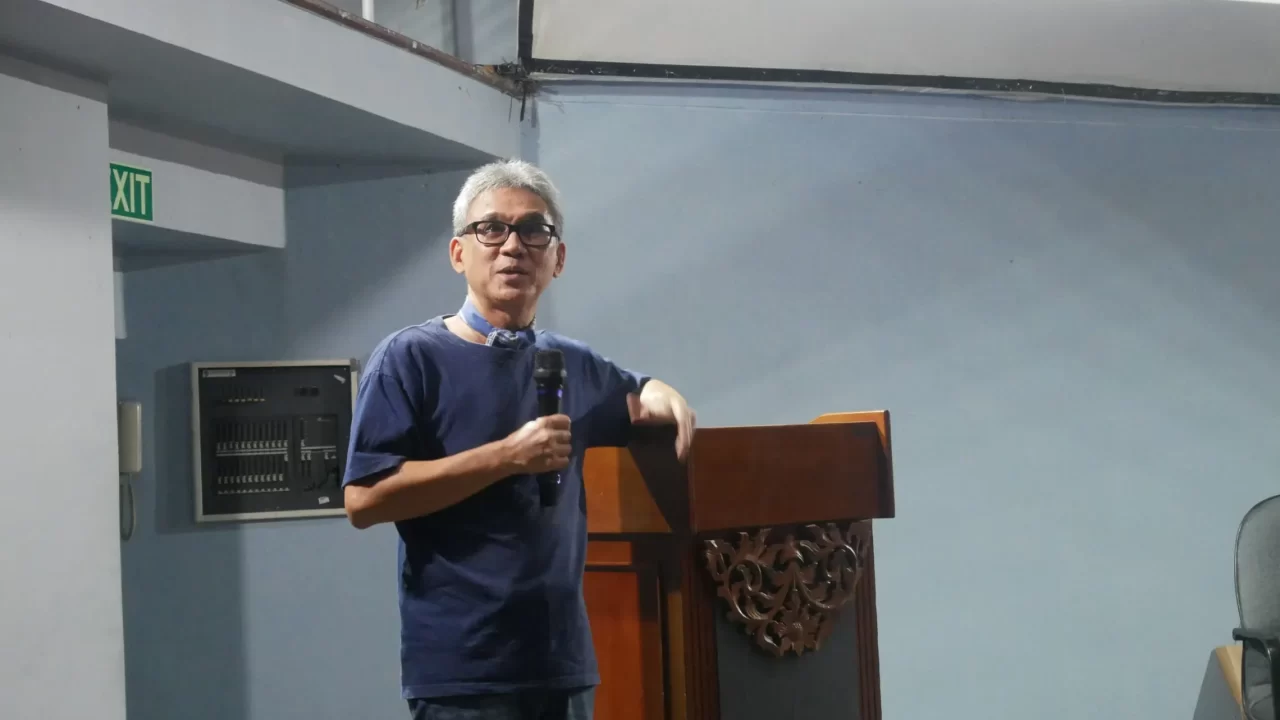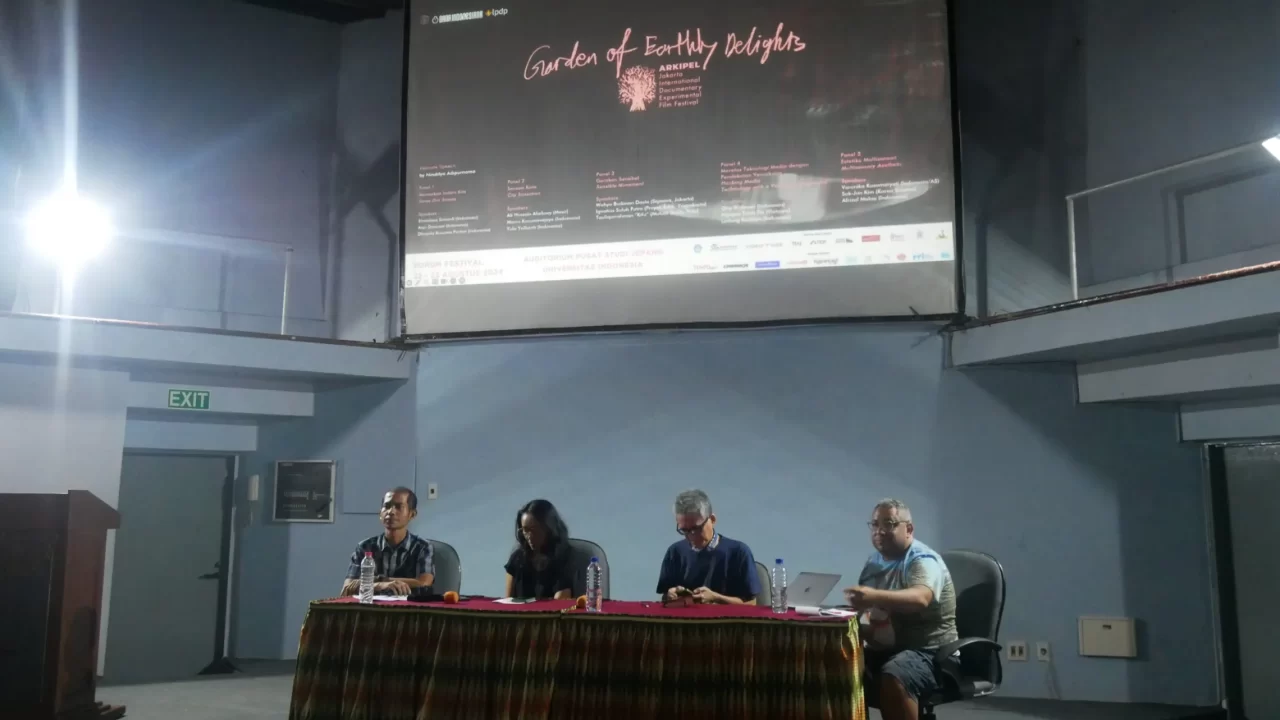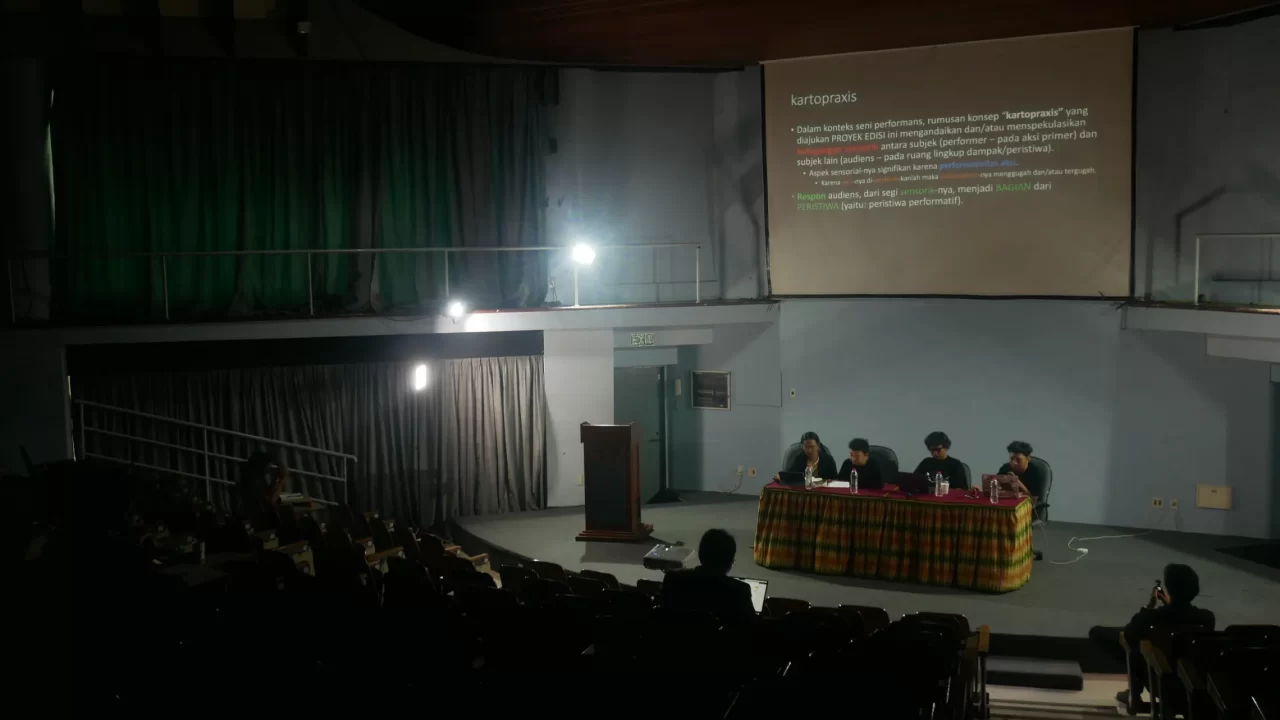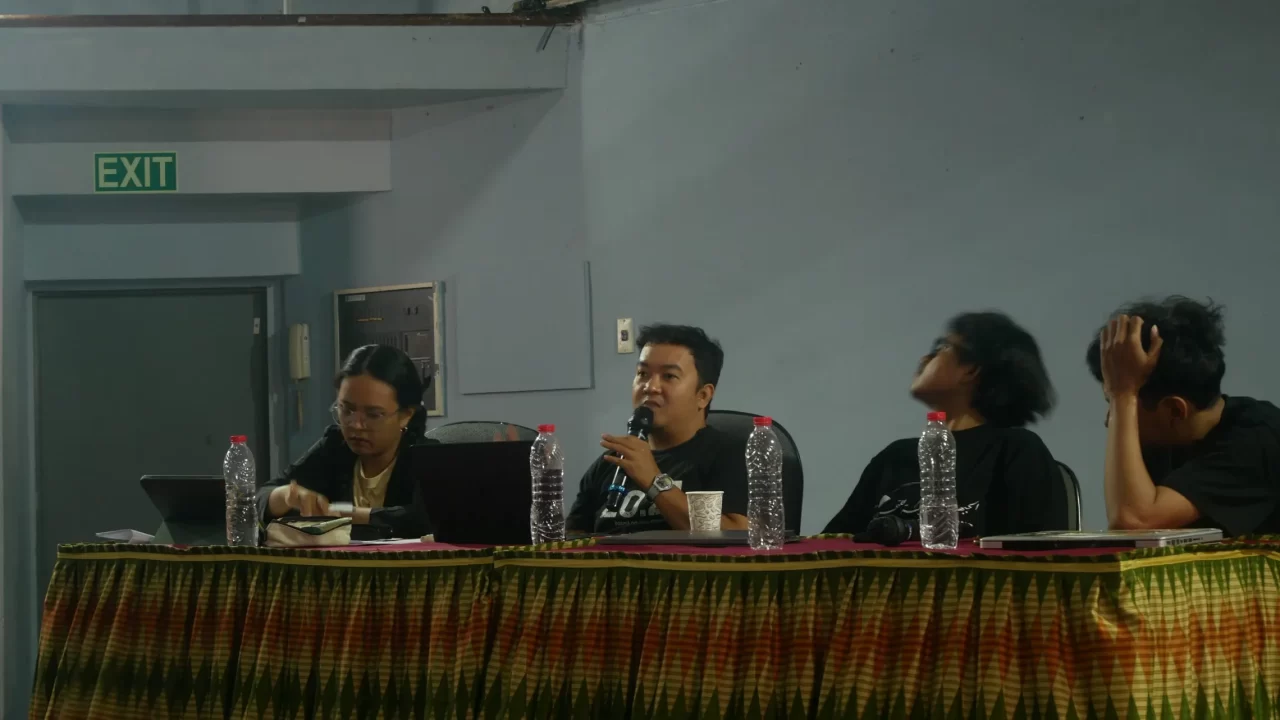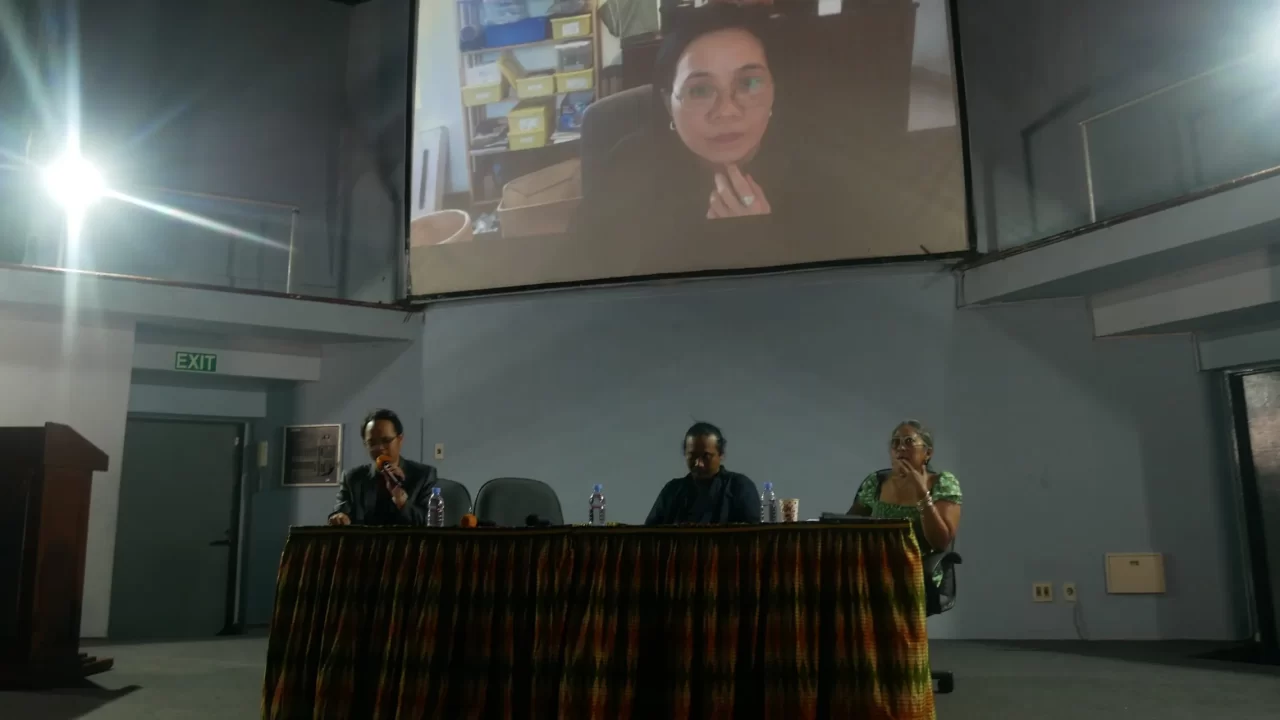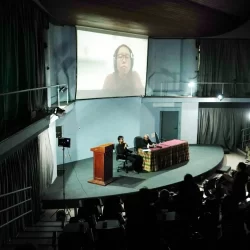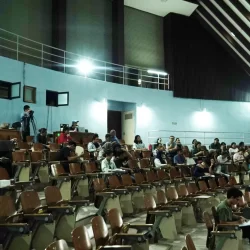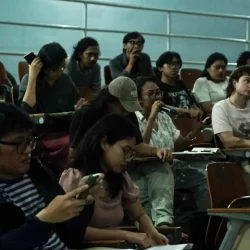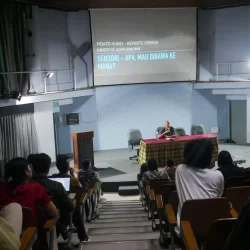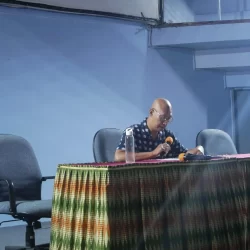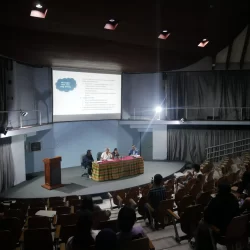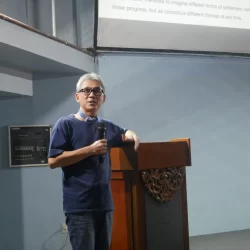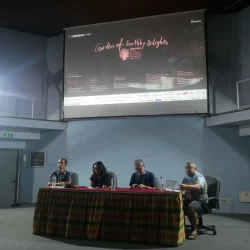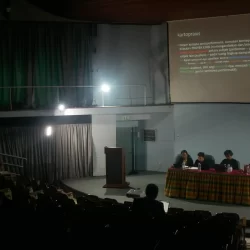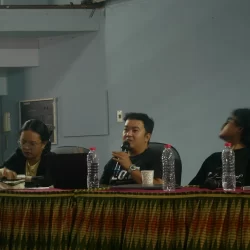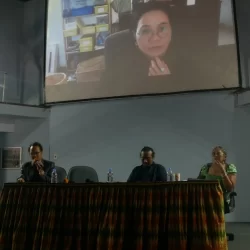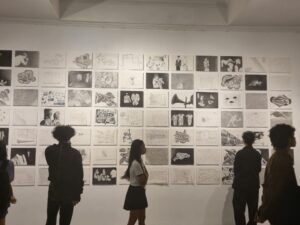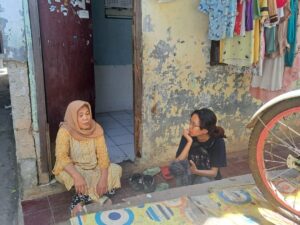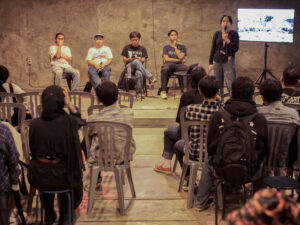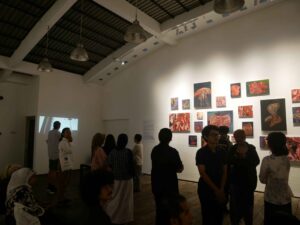Forum Festival, a symposium organized as part of ARKIPEL Garden of Earthly Delights – Jakarta International Documentary and Experimental Film Festival 2024, became a platform to reflect on the significance of human sensory experience. Taking place at the University of Indonesia on August 22-23, 2024, the symposium brought together filmmakers, artists, curators, critics, communities, and academics from various backgrounds to dialogue and explore the sensory dimension, an aspect of human experience that is often overlooked. Over several days, participants were invited to engage in an in-depth discussion on how humans experience the world. Through a series of keynote speeches, panel discussions, and artwork presentations, the symposium presented diverse perspectives on the relationship between the body, space, time, and technology, as well as the influence of social, cultural, and technological factors on human sensory experience. The keynote speech delivered at the beginning of the Festival Forum by artist and art activist Nindityo Adipurnomo became the starting point for all discussions in the ARKIPEL Festival Forum. Through his presentation, Nindityo reflected on the relationship between body, space and time. He emphasized that the body is the main tool for experiencing the world and that humans tend to overlook the important role of the body in the process of knowledge formation. Nindityo says to be more aware of physical sensations and how these sensations affect the way we think and feel. Furthermore, Nindityo questions the assumptions underlying the way humans understand the world. He referred to the thoughts of philosophers to show how the way humans think about reality has changed over time. He also highlighted the importance of maintaining a critical attitude towards one’s knowledge and constantly striving to extract meaning from experiences. The keynote speech by Nindityo Adipurnomo served as a kind of foundation for all discussions in the Festival Forum. His vision of art as an experience that involves the whole body and senses became a central theme that was further explored in the discussion panels. The first panel, Sensing Our Senses, moderated by Adi Osman, delved deeper into how human sensory experience changes over time and how factors such as technology and culture affect the way humans experience the world. The experience of watching shadow puppets shared by St. Sunardi was an example of how direct sensory experiences and those mediated by technology have different stimuli on him. He then concluded that humans are transitioning into a post-human era, and how the human sense of taste that was once central to identity is now in danger of being marginalized. The second panel, City Sensations, moderated by Ali Satri Efendi, explored how urban environments shape and influence sensory experiences. Speakers in this panel presented perspectives on how the history, culture and architecture of cities shape the way people experience public spaces. Marco Kusumawijaya highlighted how the development of perceptions of the city has a historical context that shapes its meaning. He also discussed how in the context of Indonesian history, tradition and colonialism shaped the way people perceive the environment. Yola Yulfianti shared her art project that explores how individuals growing up in urban environments can feel disconnected from their cultural identity. She uses her body as a tool to respond to and transform urban experiences, seeking ways to reconnect with nature and tradition. Then, Ali Hussein AlAdawy, through his analysis of film, showed how cinema is a medium that reveals the social and cultural dynamics of the city. The third panel, Sensible Movement, moderated by Alifah Melisa, highlighted how artists utilize the body, technology, and archives to respond to phenomena in their environment. The speakers, Taufiqurrahman from Mutual Study, Ignatius Suluh from Proyek Edisi, Wahyu Budiman Dasta from Sigisora, with different backgrounds and approaches, showed how art becomes a tool to understand and respond to social, cultural and environmental issues. One of the main points that emerged in this discussion was the importance of sensory experience in understanding the environment. These artists use their bodies as instruments to sense and respond to their surroundings. They also utilize technology such as sound and video recording to capture and document their sensory experiences. The fourth panel, Hacking Media Technology with Vernacular Approaches, moderated by Luthfan Nur Rochman, presented a conversation on how technology is adapted and utilized to address local identity and contemporary issues. Speakers in this panel focused on how artists and makers utilize technology in unique and personal ways, often by combining traditional practices with modern tools. For example, Otty Widasari compared the story of a village mechanic who managed to build an airplane with the poet Chairil Anwar, both of whom are considered to be figures who dared to challenge the conventions of their time. Nguyen Trinh Thi, through her work, explores the relationship between humans and nature by using the sound of the Mekong river as a musical instrument. Meanwhile, Lintang Radittya developed the concept of Javanese Futurism that combines modern technology with Javanese mythology. The fifth panel, Multisensory Aesthetics, moderated by Helmi Yusron, delved deeper into multisensory experiences in life and how art becomes a tool to explore sensory dimensions that are often overlooked. One of the points that emerged in this discussion was how language and culture have shaped the way humans perceive and understand the world. Afrizal Malna discussed how the shift from spoken to written language has diminished the sensory dimension of communication. He argued that spoken language allows humans to experience the world more holistically, involving not only hearing, but also the body and emotions. Suk-Jun Kim expanded on this discussion by addressing the concept of the “pure listener”. He argues that deep listening can produce knowledge that is abstract and beyond visual comprehension. He also emphasized the importance of listening as a social and cultural practice, especially among marginalized communities. Veronika Kusumaryati offered concrete examples of how visual art can transcend conventional boundaries by utilizing various media and technologies. The ARKIPEL Festival Forum presents a space for deep reflection on human sensory experience. Through a series of discussions, this symposium highlights the importance of the senses in shaping human perception of the world. Starting from the exploration of personal experiences of changes in taste to an in-depth analysis of how urban environments shape the way people perceive space. The symposium also emphasized the importance of engaging the public in creating environments that are more sensitive to sensory experience, as well as the role of art as a tool to challenge cultural norms that limit sensory expression. Year Jakarta, Indonesia
2024
Forum Festival ARKIPEL Garden of Earthly Delights – Jakarta International Documentary and Experimental Film Festival
